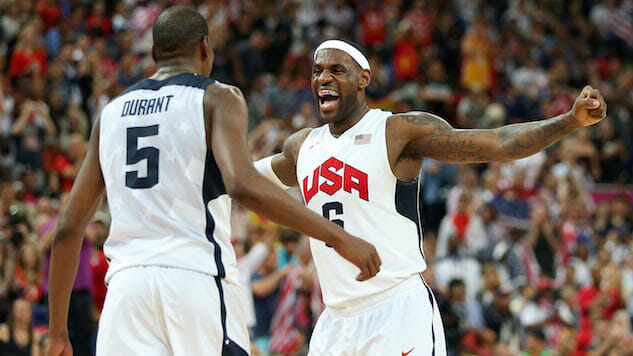Olympic Basketball Is Really Boring. Here’s How to Fix it.
Kevin Durant should skip Rio, too.
Photos courtesy Getty Images
Remember Olympic baseball? No? Well, I do—sort of. Baseball is a sport dominated by the Americans with little—though growing appeal. Yet it happens right in the middle of the Major League Baseball season, leaving few professional players to play for their country in what they saw as a meaningless tournament. Basketball has the exact opposite issue: there are too many stars on one team in Olympic Basketball, making the tournament immensely unbalanced. The International Olympic Committee must be happy that the sport’s best players are on display, but they should be concerned about hosting a tournament so unbalanced it’s in danger of becoming irrelevant. The IOC and the United States Basketball Association should give basketball fans, coaches, and scouts a look at the league’s future stars, whether they are in college or in their first few years of professional basketball.
(Click here to read Bijan C. Bayne on Olympic basketball before the Dream Team)
USA fans only really need one night per year of incessant alley-ooping, and the NBA All Star Game satiates that need. Having three straight weeks of it once every four years just ruins the spectacle, and instead of being the worldwide competitive sport that the Olympics want it to be, NBA stars just use it as a chance to humiliate other nations. The one time they haven’t done so is when the USA lost to Argentina in 2004, when Manu Ginobili went off for 29 points against arguably the worst defensive backcourt in USA basketball history in Stephon Marbury and Allen Iverson.
-

-

-

-

-

-

-

-

-

-

-

-

-

-

-

-

-

-

-

-

-

-

-

-

-

-

-

-

-

-

-

-

-

-

-

-

-

-

-

-








































